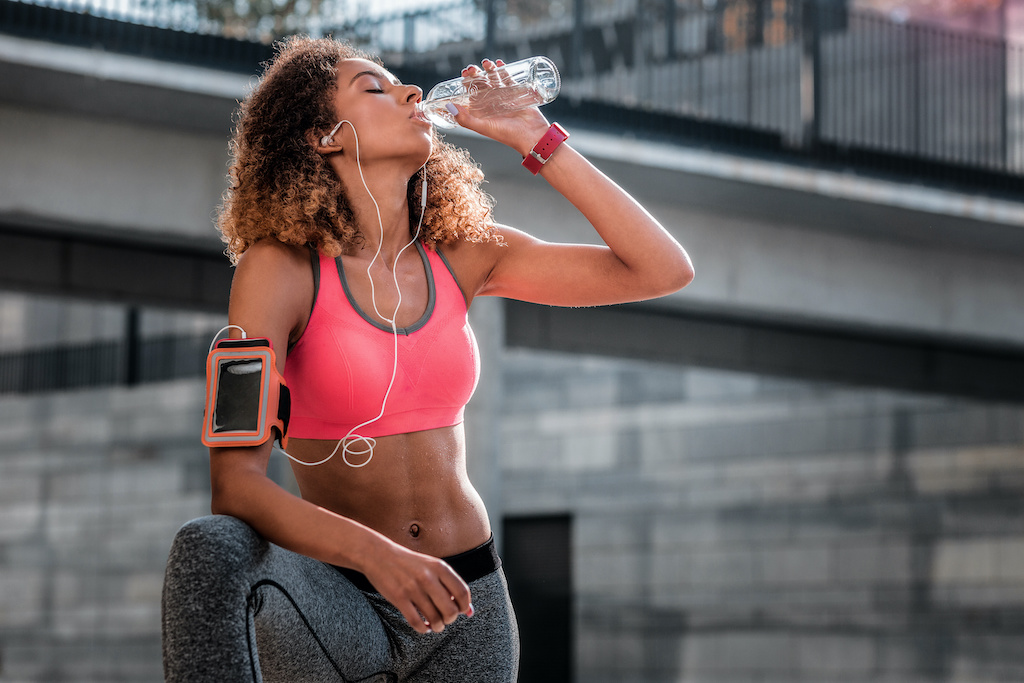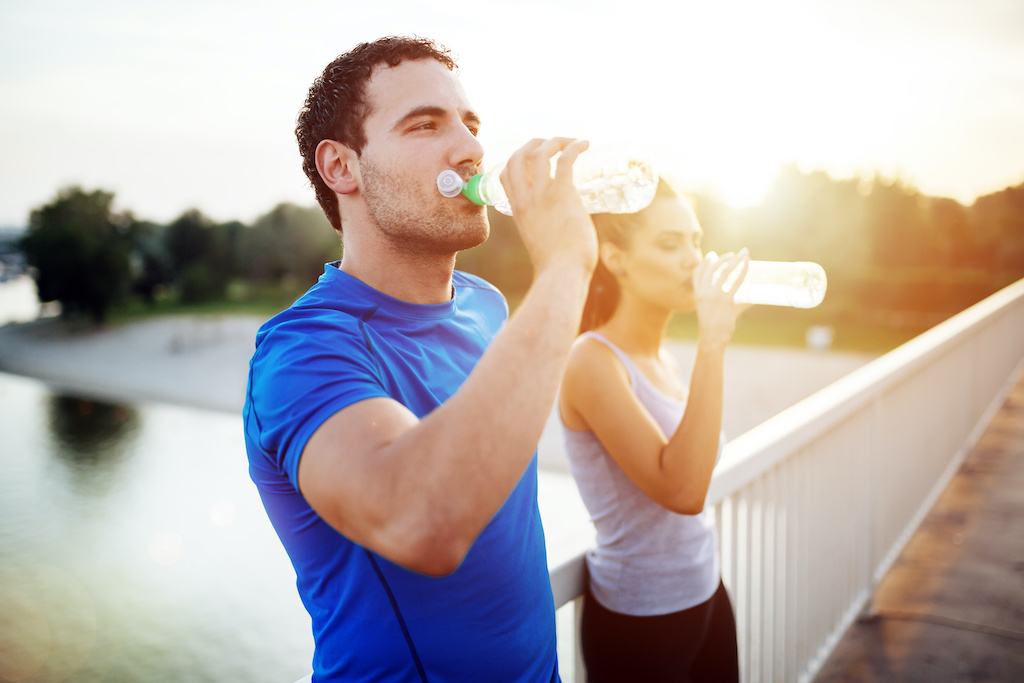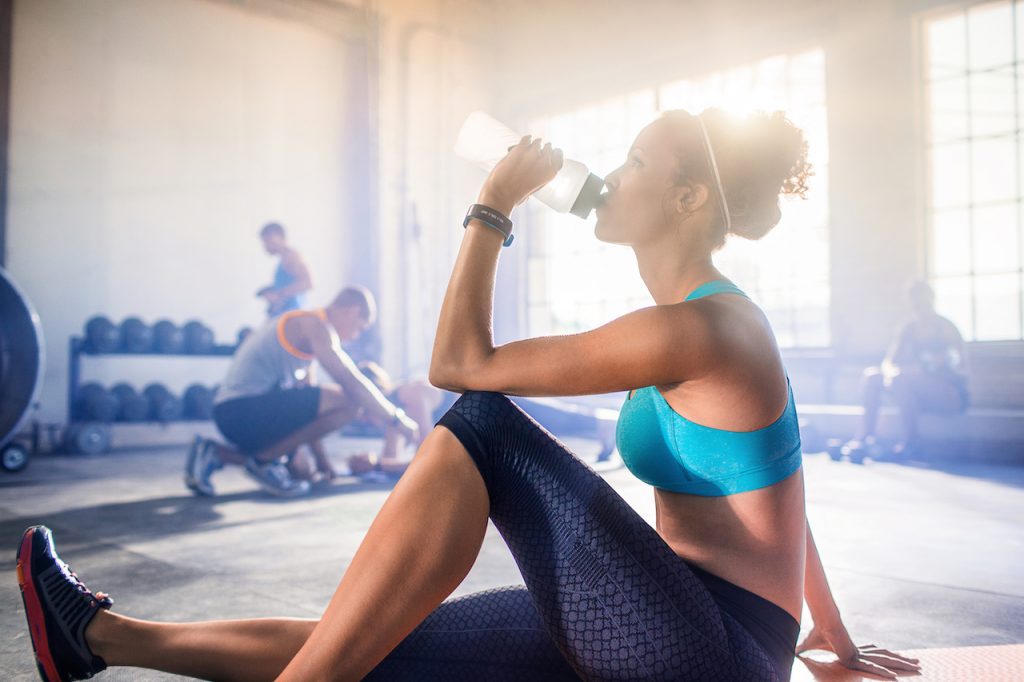Good hydration is important for everyone, but this aspect is even more important when doing sports. How much water do you need to drink to stay well hydrated, what are the best times to hydrate and what habits can sportsmen and women adopt to compensate for water loss due to intense or long workouts?
The importance of hydration

Water is vital for the proper functioning of the body: it makes up 70% of an adult’s body weight. Hydration is a key factor in staying healthy and allowing all metabolic processes to run smoothly.
The benefits of good hydration
Good hydration has a direct impact on health:
- Hydration helps eliminate the toxins that are accumulated by the body through the kidneys and liver.
- Good hydration eases digestion, which is another essential process for eliminating metabolic waste products.
- Adequate water intake is important for the proper functioning of the cells.
The consequences of dehydration
A dehydrated body begins to show weakness quickly, both physically and mentally. The following symptoms are a telltale sign of dehydration:
- Feeling excessively thirsty
- Reduced sweating and decreased urine production
- Vertigo, confusion, fever, and even headache, due to the drop in blood pressure
- Etc.
By drinking enough water throughout the day and adopting a healthy and varied diet that’s suited to your physical activity, you can easily avoid the symptoms of dehydration.
All the best tips for staying well-hydrated

To stay well hydrated, drink the recommended amounts to satisfy your own body’s needs and choose the right drinks, as water is the best source of hydration for day-to-day activities. Diet can also contribute to good hydration.
The right habits to stay well-hydrated
The amount of water consumed daily is important, but so is the way to hydrate:
- As a rule of thumb: drink about 1.5 litres of water during the day, bearing in mind that your diet is supposed to provide an additional 0.5 to 1 litre of water per day, so as to achieve 2 to 2.5 litres of water intake per day.
- Drink in small quantities throughout the day.
- Increase your water intake when it is hot or when practising sports, because your body loses more water through perspiration in order to regulate your body temperature.
Mistakes to avoid in order to stay well-hydrated
By avoiding these mistakes, you will ensure you stay well hydrated:
- Drinking too much water can put a burden on the urinary system, which can lead to infections or inflammatory problems.
- Listen to your body to determine when it needs hydration. With a little practise, you’ll be able to feel thirsty without ignoring it so you can drink at the right time.
- Avoid sugary and alcoholic drinks as much as possible.
Focus on sports hydration

When doing sports, the body needs more water intake to compensate for the water loss caused by perspiration. Drink regularly, about 150 to 200 ml every 15 minutes, before, during and also after exercise. There are specially formulated drinks for sportsmen and women: they each have a specific purpose and correspond to specific situations.
Energy drinks
Energy drinks are high in carbohydrates and vitamins. When taken during a long workout session, they help to replenish the stored glycogen used by the body to produce energy. They are only necessary for a workout lasting more than 1 hour and a half. Take small sips of 0.5 litres for every hour of activity.
Isotonic drinks
Isotonic drinks have a similar concentration to that of human body fluids. Thus, they are more easily absorbed by the body and make it possible to compensate more quickly for the loss of water as well as sugar level drop, which occur during exercise. They should be taken before or during a sports session.
Recovery drinks
During exercise, the body not only loses water but also mineral salts through perspiration. Recovery drinks are rich in mineral salts such as magnesium and also contain proteins and amino acids, which are essential for rebuilding muscles. They are consumed after workouts in order to promote muscle recovery.
Check out our Health & Fitness page for more advice.
